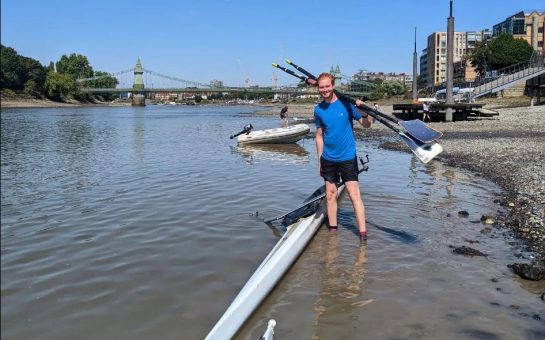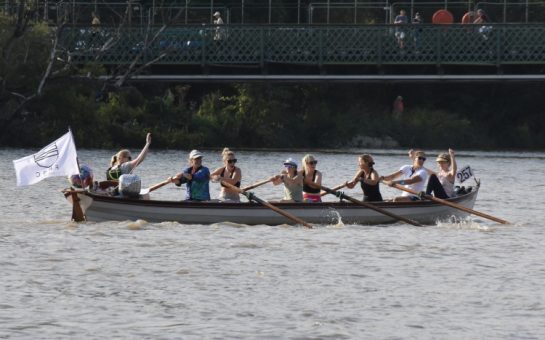Mohamed Sbihi’s road to Rio has so far been about redemption, breaking boundaries and smashing records. Now he’s ready to make history too.
Sbihi does not come from a traditional rowing background, having been spotted at his south-west London school in a talent identification programme 12 years ago.
When he started in the sport, he spent more of the time in the water than on it – admitting he was ‘clueless and hopeless’ and surprising himself that he didn’t give up and return to his mates on the football team.
Fast forward and the 28-year old is now part of Team GB’s flagship rowing crew in Rio – the men’s four, an event Great Britain has won in four consecutive Games in Sydney, Athens, Beijing and London.
The boat – the baby of coach Jurgen Grobler – is the one every member of the men’s open squad aspires to when the season begins with winter trial races in Nottingham and Lincolnshire.
But with selection comes the enormous responsibility of upholding a tradition started by the legends of Sir Steve Redgrave and Sir Matthew Pinsent, storied lynchpins of the original ‘Oarsmen Foursome’ on Penrith Lakes 16 years ago.
Sbihi missed out on a place in the boat four years ago and instead made his Olympic debut in the eight, winning a bronze at Eton Dorney – a memory he’s used to motivate and inspire ever since.
“To be honest, I was pretty disillusioned and moody about it – bronze was not the medal I wanted,” he admits.
“That was the last race for a lot of that team and they won’t get another chance. That makes this opportunity so important to me, the chance to be on the right side of a result.
“Being in Jurgen’s top boat is always my target, when I missed out in 2012 it took me a while to deal the disappointment mentally.”
Sbihi fondly recalls childhood summers spent in his father’s native Morocco, where the family would all relocate for the holidays.
And in Tangiers that extended cheering squad of aunts, uncles and cousins will be gripped by his Olympic races, in perhaps the least likely Team GB fan zone.
It’s no surprise that family and faith are central to Sbihi’s life.
“Being a positive role model as a Muslim sportsman is important. My faith is very important to me, it’s how I was brought up and something that I strongly believe in. I recite the first words of the Qur’an before the start of every race.
“I come from a working-class background, I came into the sport by different means to other members of the team.
“I went into it with some prejudice but I swiftly realised I was wrong. I don’t think rowing is an elitist sport – it’s cheaper to be member of a rowing club in London than most gyms.”
Sbihi’s background is very different to his team-mates in Rio. George Nash, Constantine Louloudis and Peter Reed, the latter a Lieutenant in the Royal Navy, are all winning Boat Race blues.
But they are also all in awe of Sbihi’s dedication to training and capacity at pushing himself to the limits – which, in the final analysis, is all that really matters.
For more than a decade, the most coveted record in British rowing was four-time Olympic champion Pinsent’s two kilometre ergo mark. Last year Sbihi smashed it in style, covering 2000 metres in just five minutes 41.8 seconds.
“I just want to win a gold medal so badly,” he adds.
“We know what the men’s four means, all that history, all those great names. I want to be part of that success, to be part of that elite club.
“We’ve won the men’s four in every Olympics since 2000. There is a responsibility to keep it going but we’ve been selected for a reason and that’s a big confidence boost for us all.”





